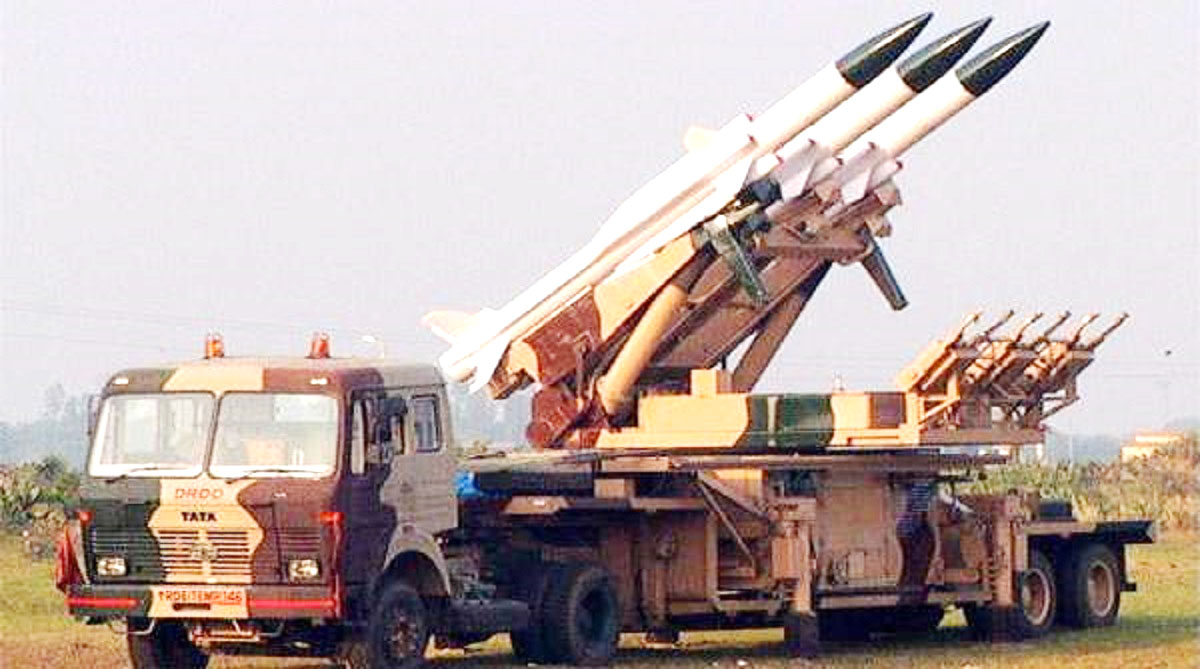Army Variant of MRSAM | 28 Mar 2022
Why in News?
Recently, the Defence Research and Development Organisation (DRDO) conducted two successful flight tests of the Army version of Medium Range Surface to Air Missile (MRSAM) at the Integrated Test Range, Chandipur, off the coast of Odisha.
- The tests were part of the live firing trials against high-speed aerial targets. The first launch was to intercept a medium-altitude long-range target and the second launch was for providing capability of a low-altitude short-range target.
- The maiden test of the Medium Range Surface to Air Missile (MRSAM) for the Indian Army was conducted in 2020.
What is an MRSAM?
- Army Variant of MRSAM:

- It is a surface to air missile developed jointly by DRDO, India and Israel Aerospace Industries (IAI), Israel for use by the Indian Army.
- It consists of a command and control post, multi-function radar and mobile launcher system.
- MRSAM:
- It is a high response, quick reaction, vertically launched supersonic missile, designed to neutralize enemy aerial threats – missiles, aircraft, guided bombs, helicopters.
- Supersonic missiles exceed the speed of sound (Mach 1) but they are not faster than Mach-3.
- It is used by the Army, Navy and Air Force as different variants.
- In May 2019, Indian Navy, DRDO and IAI conducted the maiden co-operative engagement firing of the naval version of the MRSAM.
- It is a land based variant of the Barak Air and Missile Defence System (AMD).
- India buys Barak AMD from Israel, it was designed and developed by Israel to protect its economic zones and strategic facilities from various threats.
- The missile’s management system uses the radar to track and correctly identify the target, calculates the distance from it and gives all the information to the Commander for a decision to be made on interception.
- The missile itself is 4.5 metres in length with a weight of around 275 kg.
- It is equipped with fins and canards to stabilise its flight and provide it manoeuvrability.
- The missile is powered by a solid propulsion system coupled with a thrust vector control system.
- It can engage multiple targets upto a range of 70 km.
- It is a high response, quick reaction, vertically launched supersonic missile, designed to neutralize enemy aerial threats – missiles, aircraft, guided bombs, helicopters.
UPSC Civil Services Examination, Previous Year Questions (PYQs)
Q. From which one of the following did India buy the Barak anti-missile defence systems? (2008)
(a) Israel
(b) France
(c) Russia
(d) USA
Ans: (a)
